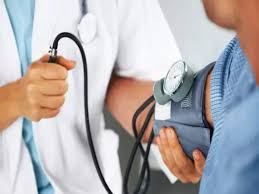Kidney Health: 7 Lifestyle Mistakes That Could Be Harming Your Kidneys and Increasing Your Risk of Cancer
Dr. Nishith Modi - Consultant, Surgical oncology, HCG Cancer Hospital, Vadodara. Maintaining the health of your kidneys is crucial for overall well-being. These essential organs are crucial for filtering waste, maintaining fluid balance, and regulating blood

Dr. Nishith Modi – Consultant, Surgical oncology, HCG Cancer Hospital, Vadodara.
Maintaining the health of your kidneys is crucial for overall well-being. These essential organs are crucial for filtering waste, maintaining fluid balance, and regulating blood pressure. Your lifestyle choices greatly influence kidney function and overall well-being.Top of FormBottom of Form Certain habits and practices can undermine kidney health, leading to potential complications and increased risk of serious conditions. Recognizing and correcting these lifestyle mistakes is essential for preserving kidney function and ensuring long-term health.
Kidney cancer can develop quietly within the cells of your kidney tissue, often without noticeable symptoms until it has progressed. This cancer starts when changes in the cells cause them to divide uncontrollably, forming a tumor. The risk of kidney cancer increases with age and is influenced by various lifestyle factors. Avoiding certain lifestyle mistakes can help safeguard your kidneys and reduce your risk of cancer.
Lifestyle Mistakes to Avoid Protecting Your Kidneys from Cancer
- Unbalanced Diet: A diet deficient in essential nutrients can impair kidney function. Focus on eating a well-rounded diet that includes plenty of fruits, vegetables, and whole grains, while reducing consumption of processed meats, sugary drinks, and unhealthy fats. Nutrient-rich foods deliver vital vitamins, minerals, and antioxidants that promote healthy kidney function and reduce the risk of cancer.
- Inadequate Hydration: Drinking sufficient water is vital for kidney health, as it helps flush out waste products and toxins from the body. Drinking at least 8 glasses or 2 liters of water daily is advised. Monitoring your urine colour can help gauge your hydration status; pale yellow urine typically indicates proper hydration.
- Smoking and Alcohol: Both smoking and alcohol consumption are linked to kidney cancer. Smoking introduces harmful chemicals into the body, while excessive alcohol can damage the kidneys. Quitting smoking and moderating alcohol intake can protect your kidneys and reduce cancer risk. Seek support from healthcare professionals or support groups to help with these lifestyle changes.
- Hypertension: Uncontrolled high blood pressure can damage the kidneys over time, increasing the risk of cancer. Regularly monitor your blood pressure, adopt healthy lifestyle changes, and stress management to maintain a healthy range.
- High Blood Sugar Levels: Diabetes significantly raises the risk of kidney disease and cancer, and maintaining tight control over it is essential. This involves adhering to a diabetes management plan that includes a healthy diet, regular physical activity, and medication as needed. Regular monitoring and maintaining good blood sugar control can minimize kidney complications.
- Excessive Use of Pain Relievers: Over-the-counter pain relievers, particularly nonsteroidal anti-inflammatory drugs (NSAIDs), can harm the kidneys if used excessively. Use these medications sparingly and under medical guidance. Consider alternative pain management strategies, such as physical therapy or acupuncture, and follow recommended dosage instructions.
- Excess weight: Strive to keep a healthy body weight by incorporating regular exercise and practicing mindful eating. Carrying excess weight can put added stress on the kidneys and heighten the risk of kidney disease and cancer. Prioritize a balanced diet with a variety of nutrient-dense foods in proper portions to support weight management and overall health.
By addressing these lifestyle mistakes, you can better protect your kidneys and reduce your risk of developing kidney cancer. Enhanced awareness, early detection, and improved treatment options are key to managing and potentially reducing the incidence of kidney cancer.






